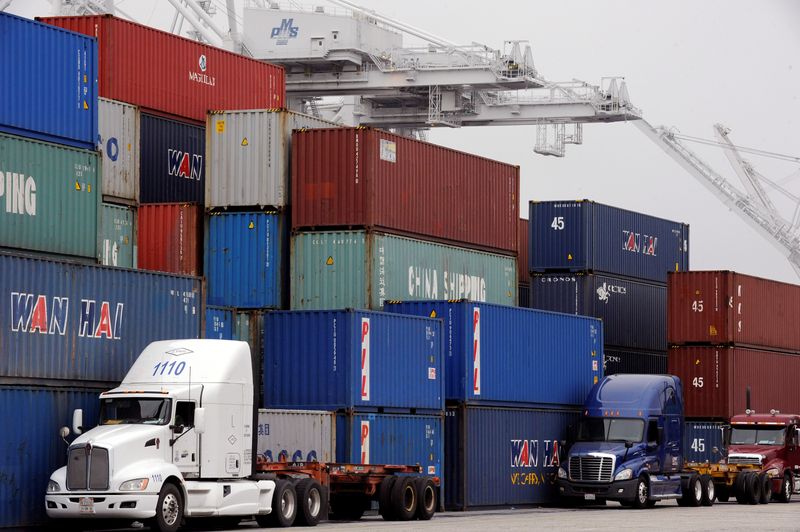By Jason Lange and David Lawder
WASHINGTON (Reuters) - Americans don't think import tariffs are a good idea if they lead to higher prices and are skeptical they would help U.S. workers, a Reuters/Ipsos poll found, underscoring the political risks to President-elect Donald Trump's plan to impose heavy fees on goods from China, Mexico and other nations.
Only 29% of respondents in the six-day poll, which closed on Tuesday, agreed with a statement that "it’s a good idea for the U.S. to charge higher tariffs on imported goods even if prices increase," while 42% disagreed. Another 26% said they didn't know and the rest didn't answer the question.
Just 17% of respondents agreed with a statement that "when the U.S. charges tariffs on imported goods, it is good for me personally."
Americans' views on tariffs pose a potential problem for Trump when the Republican returns to the White House on Jan 20. Economists say his tariff plan, which is more aggressive than the one he employed during his 2017-21 presidency, would spark higher inflation of the sort that weakened Democratic President Joe Biden and helped pave Trump's path back to the White House.
"I think that some of the public opinion might act as a bit of a brake on Trump's more extreme tariff plans, because clearly, they will show up in prices," said Mary Lovely, a trade economist and senior fellow at the Peterson Institute for International Economics, a pro-trade think tank.
Trump has pledged to boost American industry by imposing a 10% universal import tariff and a 60% tariff on Chinese imports. He has also threatened 25% duties on goods from Mexico and Canada as well as an additional 10% tariffs on Chinese goods, as a way to push them to clamp down on the flow of the deadly opioid fentanyl, and illegal immigration to the U.S. The three countries are America's top trading partners.
About 10% of U.S. consumer spending goes toward imports, the Federal Reserve Bank of San Francisco has estimated, so major tariffs could significantly impact household finances.
In an interview with NBC's Meet the Press that aired on Sunday, Trump said he did not believe that consumers ultimately pay the price of tariffs, adding "I think they're beautiful."
"Tariffs are going to make our country rich," he said.
The poll, which was conducted online, surveyed 4,183 U.S. adults nationwide and had a margin of error of about two percentage points in either direction.
'TARIFF MAN'
Trump's talk of tariffs has raised the prospect of trade wars - that is, tit-for-tat measures between nations aimed at undermining one another's economies.
The president-elect called himself a "tariff man" during his first term when he levied tariffs between 7.5% and 25% on some $370 billion worth of Chinese goods. But those policies exempted many top categories of Chinese imports - including smartphones, laptops and video game consoles - and overall U.S. inflation remained low.
Facing much higher levies on potentially every U.S.-bound export, China's top leaders and policymakers are considering allowing the yuan currency to weaken in 2025, a move that would counter the effect of tariffs by making Chinese goods cheaper in dollar terms, Reuters reported this week.
Mexican President Claudia Sheinbaum has hinted at possible retaliation to Trump's tariffs, saying in a letter to him that "one tariff will follow another in response." Some Canadian regional leaders have urged a strong response to Trump's tariffs, including potentially halting Canadian energy exports, while others have highlighted U.S. reliance on critical minerals mined in Canada.

The long-term decline in U.S. factory employment was seen as a factor in Trump's victory in the 2016 presidential election when he carried Wisconsin, Michigan and Pennsylvania. He won those Rust Belt states again in November.
But Americans currently appear less hostile to international trade than they had during the first Trump administration. Some 48% of respondents in the new poll agreed with a statement that "international trade hurts average Americans because it causes us to lose jobs here in America," down from 64% in Reuters/Ipsos polling conducted in 2018.